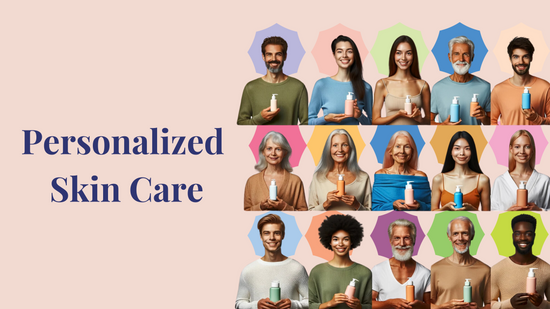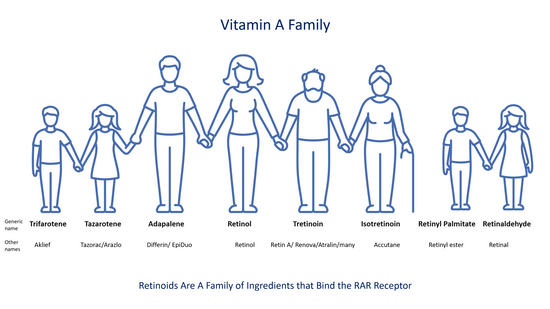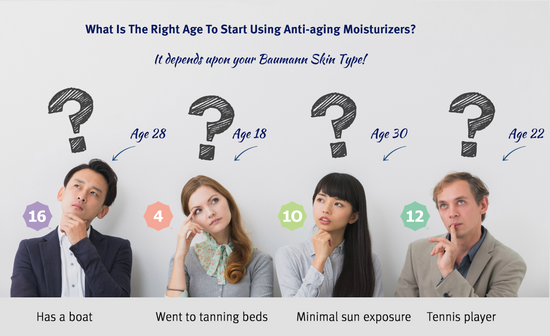Retinol Before and After Pictures
Retinoids like retinol have been shown by many studies to improve aging skin and acne. Here are some before and after pictures of retinoids and retinol to show you that it is worth it to use them consistently. The higher percentage strength you use, the better results you will have from retinoids like tretinoin, adapalene, tazarotene, and retinol.
First I will show you images from some of the original tretinoin studies. Then I will show you before and after images of my patients and others who have sent me their images.
As a thank you for reading our educational content, use the one-time code "STSBlog20" at checkout for 20% off anything in our store.
Table of contents
Tretinoin Before and After Images
Tretinoin was the first retinoid to be studied to treat skin aging. These are before and after images from tretinoin studies in the 1980s.
This is the best retinoid before and after picture I have seen. The after was taken after 26 months of tretinoin 0.1% used nightly. You can see the retinoid dermatitis in the after image. This is from a study by John Vorhees MD at University of Michigan. I cannot find the original study but I confirmed with him that these are from a study he did with Dr. Sewong Kang. He also cannot remember which study this is from (he did so many). Please DM me @skintypesolutions if you find the reference.

Tretinoin Before and After 1995
The two before and after images below are from a 1995 study that compared 2 strengths of tretinoin used for 48 weeks every night.


Before and After Images of My Patients on Retinoids
I use the Canfield Visia CA camera in my dermatology practice to track patient's progress. I have the camera set to compare the image to other people the same age, skin color and gender. The % score is how they compare. So a high % is better. If the % says 85%, this means their score is belter than 85% of people the same gender, skin color, and age.
These are patient pictures that show that their skin has improved on retinoids even as the years go by. So although they are older, in the after image their skin looks better than the previous picture. This demonstrates that using the right skin care including daily SPF and a retinoid can help keep skin looking good and improve skin texture, dark spots and photoaging.
Baumann Skin Type 4: DSNW improves with Retinoids
This image was taken in Feb 2016. You can see that her wrinkle score is 86% better than other light skinned women her age. Her dark spots (UV spots) are better than 12% of women (Keep in mind that we live in Miami and are being compared to people around the USA with less sun exposure). The deep brown spots are better than 12%. She is a DRNW skin type but her skin erythema score is high in both images.
Before Retinoids

After 3 Years on Retinoids
You can see that all parameters improved because the % is higher. (Higher is better!)

Wrinkles and Pigmentation Improve on Retinoids
Before Image of Retinoids and Tyrosinase Inhibitors
This image shows that in her baseline image her wrinkles are better than 87% of women her age and skin color. Her erythema (facial redness) is only better than 5%, Deep brown spots are 27% and superficial UV spots are 99%. Although her skin had no history of sensitivity, you can see that erythema is contributing to her hyperpigmentation. Her skin care routine focused on retinoids and tyrosinase inhibitors.

After Image of Retinoids and Tyrosinase Inhibitors

You usually see improvement of brown spots around 8 weeks after beginning a skin care routine with retinoids and tyrosinase inhibitors. This 8 week image shows improvement of wrinkles, erythema, and brown spots. The deep epiderma brown spots move superficially so we see them more in the UV spot image which shows superficial melanin. This means that her dark spots may look worse because they are closer to the surface and show more under UV light, but we can see that the deep layers are improving. These are common results at 8 weeks. If she continues on the skin care routine, the erythema, brown spots, wrinkle score and UV sot score should continue to improve. It can take 12-16 weeks for dark spots to clear.
Wrinkles, Dark Spots and Pores Improve with Retinol
Before Image of Retinol, Vitamin C and Tyrosinase Inhibitors

After Image of Retinol, Vitamin C and Tyrosinase Inhibitors

These before and after images show improvement of pores, brown spots, UV spots and facial redness after 8 1/2 months on retinol, Vitamin C and tyrosinase inhibitors. She was started on a low strength retinol and gradually increased to a stronger retinol as described here.
Wrinkles Before and After
These images were taken by a Reddit use who took the images in different lightening to show how good the results were. He gave me permission to use these images so show how well tretinoin worked. He is a DRNW skin type.
Acne and Acne Dark Spots Before and After
Before and After Custom Skincare Routine with Retinol

Get on Your Custom Routine and Take Before and After Pictures
Take your baseline before images before you begin your dermatologist-recommended custom skin care routine. Retinoids take time to work- so take your before and after retinol pictures at day 90, Day 120, and at 6 months and 12 months.
Once you take the quiz- we will tell you what skin care products to use- so get started on the correct routine for your Baumann Skin Type now!
If you happen to be looking for good retinols, here are some of my favorites!

References
- Baumann L Ch 45 Retinoids in Cosmetic Dermatology (McGraw Hill 2022) 3rd Edition
- Griffiths, C. E., Kang, S., Ellis, C. N., Kim, K. J., Finkel, L. J., Ortiz-Ferrer, L. C., ... & Voorhees, J. J. (1995). Two concentrations of topical tretinoin (retinoic acid) cause similar improvement of photoaging but different degrees of irritation: a double-blind, vehicle-controlled comparison of 0.1% and 0.025% tretinoin creams. Archives of dermatology, 131(9), 1037-1044.
- Huang, G., & Huang, H. (2018). Application of hyaluronic acid as carriers in drug delivery. Drug delivery, 25(1), 766-772.
- Touitou, E., Godin, B., Karl, Y., Bujanover, S., & Becker, Y. (2002). Oleic acid, a skin penetration enhancer, affects Langerhans cells and corneocytes. Journal of controlled release, 80(1-3), 1-7.
- Weisberg EM, Baumann LS. The foundation for the use of olive oil in skin care and botanical cosmeceuticals. In Olives and Olive Oil in Health and Disease Prevention. Cambridge, MA: Academic Press, 2021 pp. 425-434.
- Naik, A., Pechtold, L. A., Potts, R. O., & Guy, R. H. (1995). Mechanism of oleic acid-induced skin penetration enhancement in vivo in humans. Journal of controlled release, 37(3), 299-306.
- Baumann L. Ch. 45 Retinoids in Baumann's Cosmetic Dermatology, 3rd Ed. (McGraw Hill 2022)
- Baumann, L. S. (2014). Cosmeceuticals and cosmetic ingredients. McGraw Hill Professional.
- Baumann L. Ch. 35 Skin Care Regimen Design in Baumann's Cosmetic Dermatology, 3rd Ed. (McGraw Hill 2022)
- Baumann, L. (2018). How to use oral and topical cosmeceuticals to prevent and treat skin aging. Facial Plastic Surgery Clinics, 26(4), 407-413.
- Baumann, L. S. Improving compliance with cosmeceutical-prescription combinations.
- Baumann, L. (2018). How to use oral and topical cosmeceuticals to prevent and treat skin aging. Facial Plastic Surgery Clinics, 26(4), 407-413.
- Grunebaum, L. D., & Baumann, L. S. (2014). Nonprescription topical treatments for skin rejuvenation. Facial plastic surgery, 30(01), 003-011.





















































